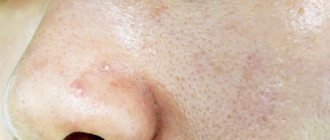Restoration of virginity, scientifically known as hymenoplasty (Gimenoplastika, plastic surgery of the hymen) is an operation aimed at restoring the integrity of the hymen. This type of intimate plastic surgery can be performed on any woman, and if the operation is performed correctly, the procedure does not cause any harm to health.
The operation to restore virginity allows you to achieve the effect of the original hymen, and during the next sexual intercourse after plastic surgery, the woman and her partner will experience sensations characteristic of natural defloration. On the girl’s side this is: moderate pain, bleeding, on the man’s side – a feeling of obstacle (obstruction).
Contraindications
Regardless of the complexity of the operation to restore virginity in women, intimate correction has a number of contraindications.
- The procedure for restoring the hymen is impossible in the following pathologies:
- Oncology;
- Exacerbation of chronic diseases of internal organs;
- Blood clotting disorder;
- Inflammatory processes of the reproductive organs;
- Presence of sexually transmitted infections.
Hymenoplasty is also contraindicated for pregnant and lactating women.
Surgical restoration of virginity does not affect further pregnancy and childbirth.
Social and psychological aspects of virginity
To understand why some women undergo surgical restoration of their virginity, it is necessary to take into account the social, psychological and cultural aspects of this phenomenon.
In the vast majority of modern and ancient cultures, female virginity is given great importance, even religious significance. The physiological state of the hymen is associated with chastity, the personal honor of a young girl. This is of particular importance in the context of sexual life and marital relations. In countries with dominant Abrahamic religions (Christianity, Islam or Judaism), losing virginity before marriage is considered an immoral and sinful act, dishonoring not only the woman herself, but also her family.
In some ancient cultures and modern traditional societies, virginity takes on religious significance:
- for example, the priestess of the ancient Roman goddess Vesta could only be innocent girls;
- in Christianity, Islam and some other religions, monasticism is widespread, in which virginity is associated with purity of thoughts and devotion to God;
- To this day, some peoples have preserved rituals of ritual loss of virginity - in this sense, it is, as it were, sacrificed to a deity.
Take the first step
make an appointment with a doctor!
Attitudes towards female virginity and its loss are also influenced by gender roles. In patriarchal cultures, it is believed that only her husband has the right to deflower a girl. In this sense, the loss of virginity is seen as a sign of a woman’s submission and devotion to her chosen one. Accordingly, the deprivation of her innocence by a man is perceived by him and society as a symbol of power over her. Associated with this is a custom such as the right of the first wedding night.
Another aspect associated with virginity is the change in a woman's social status. The loss of innocence as an irreversible process (before the advent of modern methods of restoring it) is considered as a sign of a change in the social role of a girl from a “child” to a “woman.” This is expressed, for example, in the custom of publicly hanging a sheet with traces of blood after the first wedding night. In some traditional societies, the ritual of initiating a girl by depriving her of her virginity in one way or another is still common (not necessarily through sexual contact).
Today, due to changing social roles and liberalization of sexual life in developed countries, attitudes towards virginity are also changing. Her loss is less and less seen as a significant event; it loses its symbolic meaning as a sign of chastity and innocence. Often it is perceived not as an advantage, but as a disadvantage, a sign of sexual enslavement and inexperience - with a corresponding disdainful attitude towards it.
Progress of the operation
The technique of performing an operation to restore virginity depends on the method you choose. During short-term hymenoplasty, the surgeon carefully sews together the remaining “petals” of the hymen with absorbable threads. Sexual intercourse after this type of hymenoplasty should be planned for 8-10 days.
Long-term hymenoplasty involves the formation of a hymen from a woman’s own vaginal tissue. This type of hymen restoration is also called three-layer hymenoplasty, this is due to the technical features of the operation. The surgeon selects three layers from the vaginal walls: mucous, submucosal and muscular and sews them together with multi-strand Vicryl suture material. Thus, at the entrance to the vagina, a membrane is formed that is identical to the girl’s natural hymen.
What should you do if you decide to restore your virginity?
First of all, you need to come for a consultation with a surgeon, during which you can discuss the nuances of the operation in more detail, calculate the time it will take to complete it, and ask any questions you may have.
To decide to restore your virginity, you need to know as much as possible about this operation. This will relieve fear and anxiety. At the Center for Aesthetic Intimate Surgery, hymenoplasty is performed by the best gynecological surgeons in St. Petersburg.
Rehabilitation
After surgical restoration of virginity in our clinic, you will spend some time in the hospital under the supervision of a doctor. After long-term hymenoplasty – no more than a day, after short-term hymenoplasty – about 4 hours.
After virginity restoration surgery performed in our medical center, the risks of complications are minimized. The adequate course of rehabilitation largely depends on the discipline of the patient herself.
- The first days after hymenoplasty should:
- Treat the vaginal area with antiseptic solutions;
- Avoid intense physical activity, including sex;
- Limit visits to baths and saunas;
- Avoid sitting at right angles for 1 week;
- Do not squat for up to 2 weeks;
- Do not eat foods that cause constipation.
"Important! Short-term hymenoplasty is only suitable for those girls who still have remnants of the hymen!”
Final tissue healing after long-term restoration of virginity occurs after approximately 1.5 months. 2-2.5 months after hymenoplasty, the hymen becomes elastic and soft. This time is ideal for sexual intercourse.
Hymenoplasty before and after
Before undergoing hymenoplasty, it is recommended:
- undergo a comprehensive examination, consult with a doctor and other specialists to identify deficiencies and disorders in the body;
- do an electrocardiogram and x-ray;
- It is necessary to undergo an in-depth examination by a gynecologist, take a urine and blood test for HIV, syphilis and hepatitis, blood clotting, determine the Rh factor and blood groups, and also need to take a smear for flora.
- do a video colposcopy.
The doctor makes a decision about the possibility of surgery only after studying the results of such an examination. The reconstruction operation is performed quite quickly, however, in order to obtain the desired effect and prevent any complications, it is important to follow the doctor’s recommendations. It is not recommended for several days after surgery:
- take a bath (only showers are allowed);
- avoid close relationships;
- swimming in saunas, baths, open water;
- avoid the formation of gas in the intestines; in the first days you can only eat liquid food.
results
When discussing the results of virginity restoration, the type of hymenoplasty must be taken into account. Surgeons at our clinic recommend long-term hymenoplasty, only after which a guaranteed successful result is achieved. After short-term stitching of the hymen, the threads dissolve in the next one to two weeks, so the effect of the integrity of the hymen does not last long.
“Three-layer hymenoplasty provides the maximum guarantee that during sexual intercourse there will be all the signs of natural defloration: pain, blood, a feeling of obstruction in the vagina”
Before surgery, many girls want to have an idea of what restored virginity looks like in the photo. You can visually evaluate the results of virginity restoration “before” and “after” in the photo gallery on our website.
Medical aspects of virginity
In the medical sense, virginity in women means the intactness of the hymen, an elastic membrane of connective tissue that partially covers the entrance to the vagina. Its biological role is not fully understood, but most experts are inclined to believe that it protects the genital tract from infection. Normally, the hymen does not completely cover the vagina - it has a small hole for the release of menstrual blood.
The destruction of the hymen (defloration) usually occurs during the first sexual intercourse. It can also be caused by masturbation, although in practice this rarely happens. Depending on the thickness of the membrane, its saturation with blood vessels and nerves, defloration may be accompanied by:
- Bleeding – from small to quite heavy;
- Painful sensations - not only at the moment of sexual intercourse, but also after it.
It must be borne in mind that these phenomena during defloration are the norm, but not obligatory:
- in some cases, the hymen does not tear, but simply stretches - in this case, the loss of virginity is not accompanied by severe pain or bleeding.
- on the contrary, with a large thickness of the membrane and its saturation with nerve endings, the first sexual intercourse in a girl can cause intense pain, up to the inability to continue sexual contact.
Some women have a completely absent hymen from birth, so their first sexual intercourse goes without problems, and virginity is purely psychological in nature. Also in medical practice, there are cases where after sexual contact the connecting membrane was completely restored. Therefore, it is incorrect to identify virginity exclusively with its state.
The hymen undergoes changes over time. For example, after 20-22 years, the number of elastic fibers in it decreases, which is why defloration at this and older ages is often accompanied by pain and heavy bleeding. It is believed that the most optimal age for losing virginity is 15-19 years, when the membrane stretches well and sexual intercourse causes virtually no difficulties.
Losing virginity (in the medical sense) does not always occur due to sexual intercourse or masturbation. It can also be caused by household injuries, the use of hygienic tampons, surgical interventions, and even childbirth if sperm enters the woman’s genital tract without penetration as such. For medical reasons, artificial defloration may be prescribed - for example, if the hymen is abnormally dense and interferes with natural sexual intercourse.
Restoring virginity in Moscow
At the moment, restoration of virginity in Moscow has become one of the most popular services in intimate plastic surgery. Many girls mistakenly believe that they need to see a gynecologist for a procedure to restore their virginity. Hymen repair surgery is an operation that must be performed by a plastic surgeon with sufficient knowledge in the field of gynecology. Our doctors have all the necessary skills and theoretical basis to perform high-quality plastic surgery to restore your virginity, achieving a reliable result of the integrity of the hymen. This means that no one, with the exception of a highly qualified gynecologist, will be able to guess about the hymenoplasty performed.
- Restoring virginity in our clinic means:
- Effective;
- Confidentially;
- Safely;
- Inexpensive.
All surgeons at our clinic are leading specialists in the field of intimate plastic surgery. Doctors perform surgery to restore the hymen using the most effective techniques, modern equipment and high-quality suture materials.
Why restore the hymen
The content of the article
The hymen is a thin membrane that blocks the passage into the female genital tract. The presence or absence of a hymen does not affect health in any way, so there are no medical indications for restoring the integrity of the hymen. At the same time, this operation is very popular in St. Petersburg.
Hymenoplasty is performed for various reasons:
- Girls do not want to reveal details of their personal lives, not wanting to hear reproaches and insults. Often they want to start a relationship with a blank slate.
- Married women also restore their virginity by giving an unusual gift to their beloved man for their wedding anniversary or other events. In this case, temporary restoration of the hymen is practiced. Some are operated on several times.
- Features of the national mentality. Girls brought up in strict traditions are afraid of publicity of infidelity and shame.
- Hymenoplasty is often done after rape. This allows you to forget what happened and cut off unnecessary conversations.
The reason for restoring virginity is a personal matter for the patient. The gynecologist’s task is to maintain sensitivity and maintain the confidentiality of any procedures.
Cost of surgery to restore virginity
When choosing a clinic for hymenoplasty, girls pay great attention to the cost of the operation to restore virginity. You shouldn’t chase cheapness – it could cost you your health.
| Name | Price |
| Long-term (three-layer) restoration of virginity | 77,000 rub. |
| Short-term restoration of virginity | 35,000 rub. |
| Intravenous anesthesia (for long-term hymenoplasty) | 24,000 rub. |
| Local anesthesia (for short-term hymenoplasty) | 5,000 rub. |
| Day hospital | 3,000 rub. |
- The price of virginity restoration surgery depends on two factors:
- From the clinic level;
- Depending on the type of hymenoplasty.
Each medical center, guided by the qualifications of the surgeon and the level of the blade, sets its own limits on how much it will cost to restore virginity.
The cost of restoring the hymen using a long-term method is always higher than the cost of restoring virginity using a short-term method. This is due to more complex technical manipulations, general anesthesia and the duration of the operation. How much does it cost to restore the hymen in our clinic? The price of hymenoplasty in our clinic includes anesthesia (general or local), surgery and hospital stay. Thus, the cost of long-term hymenoplasty is 104,000 rubles, the cost of short-term hymenplasty is 43,000 rubles.
An anesthesia test can be taken in our clinic or at another place convenient for you. A test for intravenous anesthesia in our medical center costs 5,000 rubles, a test for sensitivity to local anesthetic costs 1,500 rubles.
More information about the types of surgery to restore virginity can be found in the short-term and long-term hymenoplasty sections on our website.
Recommendations after
With local anesthesia during the procedure, you can go home after a couple of hours. If you had general anesthesia, you may have to stay in the clinic for another day.
Rehabilitation after hymenoplasty is not difficult, but there are a number of conditions that must be met:
- carefully observe genital hygiene, washing with antiseptics for a week;
- avoid heavy physical activity, that is, lifting objects weighing more than 5 kg, riding a bicycle, riding a horse, etc.;
- postpone visiting the sauna, swimming pool, swimming in open water and taking a bath until later;
- avoid intestinal problems, that is, reduce sweets, fresh vegetables and fruits, and rye bread in your diet.
All recovery measures after long-term surgery must be observed for 3 to 4 weeks. Vaginal sex is prohibited at this time, as it may be too painful and lead to infection. No matter how the operation is performed, after repeated defloration you should go for an examination to a gynecologist.
We recommend reading about breast lipofilling. You will learn about indications and contraindications for the procedure, preparation for surgery, methodology, recovery time and final result, cost. And here is more information about what underwear should be worn after liposuction.
What examinations need to be completed
Before performing hymenoplasty, a complete examination of the body is necessary. This measure will help eliminate possible diseases.
Diagnostic measures include the following procedures:
- general blood and urine tests;
- coprogram is a general analysis of stool;
- testing for the presence of HIV, hepatitis, syphilis;
- taking a smear for vaginal microflora;
- taking a clinical blood test - for example, determining sugar levels;
- coagulogram - checking blood clotting;
- X-ray;
- ultrasound examination (ultrasound) of the pelvic organs;
- electrocardiogram (ECG) - a procedure is necessary to determine the functionality of the heart if the patient is under anesthesia.
In addition to consulting a gynecologist, you may need the help of a therapist, cardiologist and doctors of other specializations.
The cost of diagnostics varies, it all depends on the city, the list of procedures, and the organization. Therefore, the price must be found in a specific clinic.
Features of the postoperative period
Negative phenomena that may appear after the procedure in question include:
- Pain in the perineal area. They will be especially strong during walking and physical exercise. In order to minimize this phenomenon, you should refrain from physical activity for 14 days. Bed rest is required for the first 2 days after the procedure.
- Swelling. It often goes away on the 3rd day after surgery.
- Bleeding. If there is slight bleeding, there is no need to panic - this is a normal phenomenon after such manipulation. Severe bleeding is a consequence of a hematoma. The issue of removing the hematoma should be resolved with a doctor: with insignificant volumes, it may be reabsorbed.
- Numbness in the perineal area. It occurs due to the use of painkillers and disappears on the 2nd day after hymenoplasty. If this phenomenon lasts longer, there may have been damage during the operation.
In order to avoid exacerbations, doctors recommend that patients adhere to the following rules in the first 2 weeks after hymenoplasty:
- Diet. Minimize consumption of solid foods, which can cause constipation. To protect against flatulence, the diet should not include fresh vegetables/fruits.
- Avoid using tampons. It is better to use pads before the first sexual intercourse.
- Do not ignore the rules of intimate hygiene.
- Carry out daily douching using disinfectants.
- Avoid visiting public ponds and saunas. This can cause infection of the genitals.
- Take antibiotics in the first days after surgery.
- Visit a gynecologist in a timely manner. If phenomena atypical for this operation occur: severe bleeding, prolonged pain, itching, you should immediately consult a doctor.
Preparation
Restoring virginity is an operation before which preparatory measures should be taken. If you ignore the rules, difficulties may arise during the procedure.
Preparation includes taking the following measures:
- Give up medications that affect blood clotting within 7 days. For example, Aspirin, Curantil, Warfarin. This is not a complete list of drugs. If a woman is taking any medications, it is better to inform the doctor in advance. It is possible that he will undergo surgery another day or stop using the medications.
- It is recommended to adhere to proper nutrition for 3 days. You should eat 5-6 times a day with breaks of 2-3 hours. Portions should be 200 - 300 g. Thanks to fractional meals, you can reduce the load on the gastrointestinal tract. It is recommended to steam, boil or bake food in the oven. Fried, salted, and smoked foods should be excluded from the diet. It is also recommended to avoid fatty and high-fat dairy products. It is better to buy low-fat varieties of meat and fish - chicken, turkey, hake. We should not forget about the drinking regime - at least 1.5 liters per day of clean still water. It is not recommended to drink soda, strong tea and coffee.
- Avoid drinking alcohol and smoking cigarettes for 3 days.
- If a woman has difficulty having bowel movements, she can take a laxative 8 to 12 hours before surgery. For example, Slabilen, Senade, Duphalac. It is recommended to read the instructions before use. The duration of action of drugs may vary. On average, the products soften stool and promote their elimination 8 to 10 hours after use.
If a woman does not want to use medications, she can do a cleansing enema before the procedure (in the morning).
- Get rid of excess hair in the labia area within 24 hours.
- Before the procedure (in the morning), wash thoroughly with intimate hygiene product.











